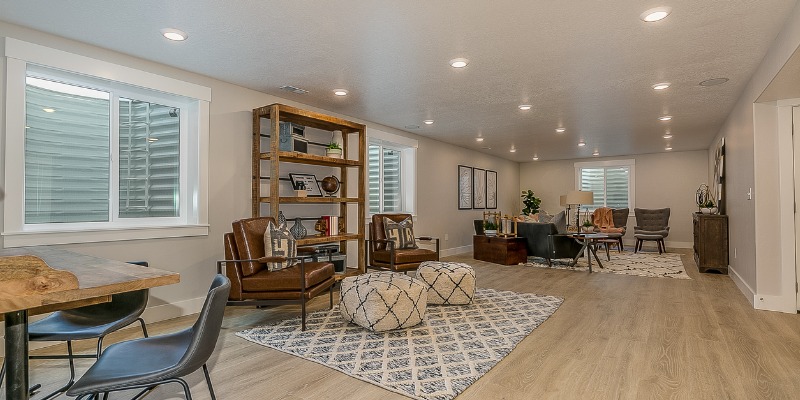
When you are heating and cooling your finished basement, you can run into some unexpected air quality issues. Furnaces, air conditioners, and other options don’t do anything to address typical basement air quality issues. Correcting them isn’t always a matter of choosing a different heating or cooling option. Instead, you may want to add an HVAC unit that can address the real issue, without making it harder to heat or cool your finished basement. If you are noticing that your heating and cooling systems are not keeping your home sufficiently heated or cooled, your basement air quality may also be suffering. Here are some solutions that we frequently recommend.
1. Humidifiers and Dehumidifiers
Basements are notorious for their moisture issues. A basement that is too wet will contribute to mold growth in the home. The excess humidity may also damage the new fabrics and finishes you just added to the space. Controlling humidity is critical to making your basement air quality better as well as maintaining the optimal temperature in the space. A humidifier or dehumidifier can help control the temperate in your basement, as properly (de)humidified air will help to maintain a consistent temperature in your basement.
On the other hand, you may have the opposite problem: a basement that is far too dry in the winter. If you are going to add your finished basement to your existing HVAC system, so that your furnace services the whole home, it may be a good idea to add a humidifier to the furnace. That way, the hot air through your ducts will also help maintain proper moisture levels in your home.
2. Air Purifiers
A finished basement, especially one that was just finished, is likely to have all kinds of air contaminants. The new finishes and features you added may release volatile organic chemicals (VOCs) into the air. These are a health hazard at high concentrations. This may also impact your cooling and heating systems to not run as efficiently as it should be, as contaminants and dust are being collected in your filter at a greater rate. You can use a HEPA purifier to remove VOCs from your basement air. Remember to also change your filters more regularly during this time.
Another common problem in basements is leftover smell from cooking, old moisture problems, and lack of ventilation. You can use an air purifier with a carbon filter to absorb smells. Or, ventilators, which we cover next, to flush smells out.
Air purifiers can also help you target other air contaminants that your specific basement may have, including:
- Allergens
- Mold spores
- Dust
- Pet dander
- Bacteria
- Viruses
It is important to make sure you select an air purifier that can capture the debris you’re trying to target.
To learn more about heating and cooling options for your finished basement, contact us at Link ClimateCare today.

3. Heat Recovery Ventilators
Many finished basements suffer from poor ventilation, as they were not originally intended to be finished by the builder. Adding ventilation can cut down on the space’s energy efficiency, making it harder to heat in the winter. That is, unless you use a heat recovery ventilator. These use your basement’s heat to pre-treat the cold fresh air coming in. It recycles your heat, while still giving your basement fresh air.
What Tools are Right for You?
Every basement is a little different. The last thing you want is to choose an HVAC unit that won’t help yours. The experts can help you make a better choice.
Heat and cool your finished basement without worrying about the air quality. Contact our experts at Link ClimateCare today to learn more.






